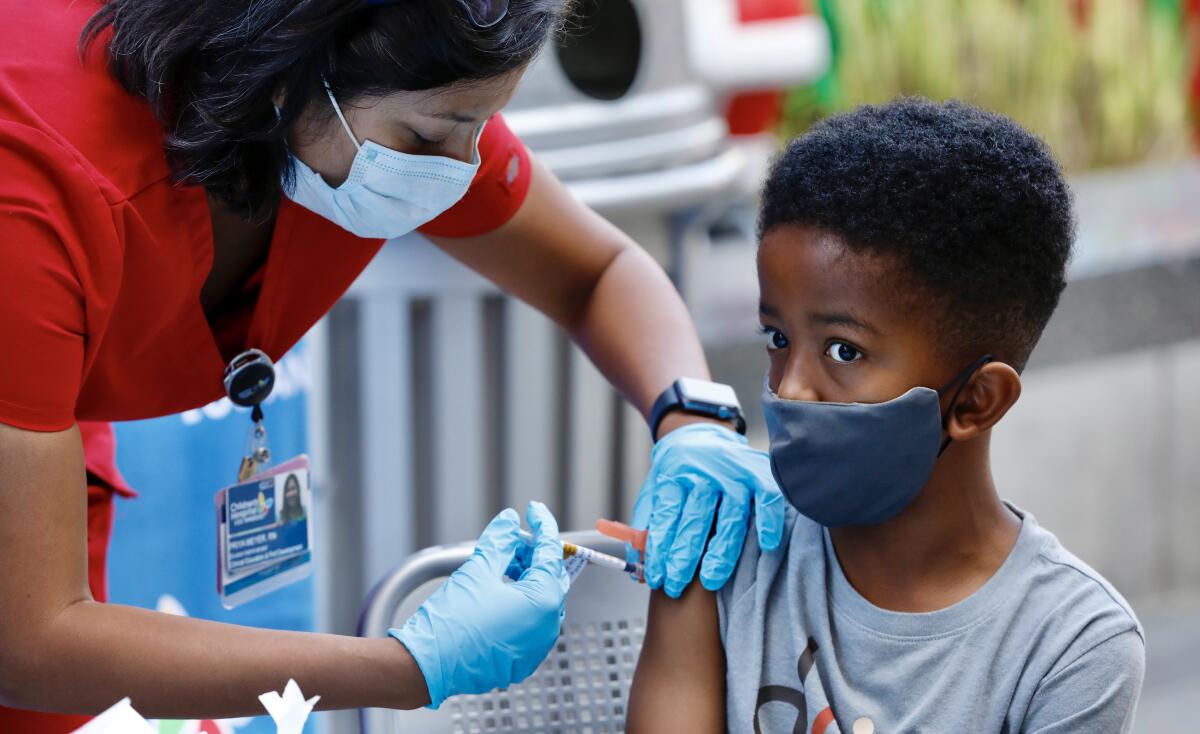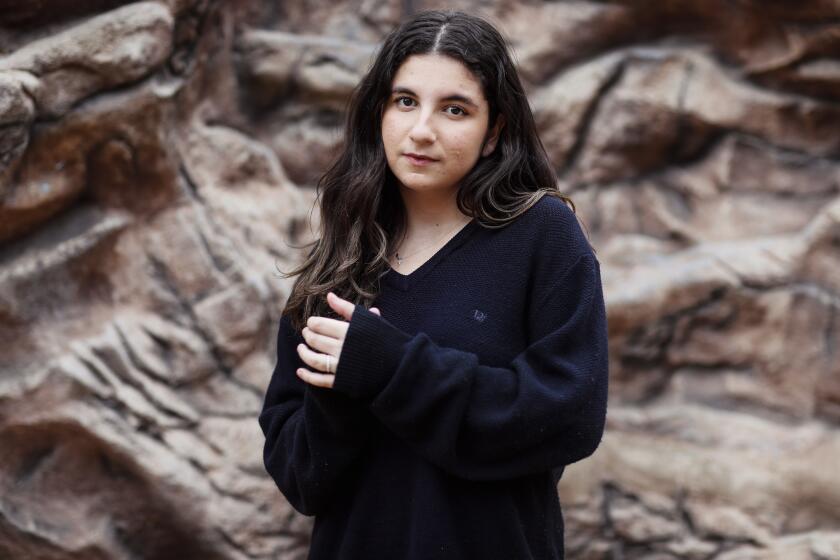Column: Should kids need parental consent for vaccines? Read this before you decide

Should children as young as 12 be allowed to get vaccinated without their parents’ knowledge or consent?
I was taken aback when I read that state Sen. Scott Wiener has proposed a bill that would essentially strip parents of the right to make such an important decision about their children’s medical care.
For the record:
9:23 a.m. Jan. 26, 2022An earlier version of this article said the group Teens for Vaccines was founded last year. It was founded in 2019.
I mean, what gives the state the right to undermine one of our most sacred bonds?
Plenty, as it turns out.
Adolescents already have the right to make lots of healthcare decisions for themselves. And this bill, if it becomes law, will simply expand on legal rights they already enjoy.
In California, for example, minors can get birth control without parental consent.
They can also get vaccinated against HPV, the sexually transmitted virus that can cause genital warts and cancer, and hepatitis B, a virus that can damage the liver.
They can get treatment for any sexually transmitted disease.
They can have an abortion.
They can receive medical attention for injuries resulting from sexual assault or domestic violence.
They can receive help for drug- and alcohol-related disorders.
And they can also get psychotherapy, all by themselves, without a parent’s permission.
So why not give them purview over all their vaccines, especially the ones that protect against COVID-19?
“Giving young people the autonomy to receive life-saving vaccines, regardless of their parents’ beliefs or work schedules, is essential for their physical and mental health,” Wiener said in a statement announcing the bill. “So many teens want to be vaccinated so that they can lead a more normal life — participating in sports or band, traveling, going to friends’ homes — but they’re prevented from doing so due to their parents’ political views or inability to find the time.”
Last week, my colleague Melody Gutierrez wrote about a 17-year-old girl who spent months tangling with her parents over being allowed to get the vaccine. They finally relented, which let the teenager return to her job as a scribe at a hospital and to visit her grandmother, who has lung cancer.
The bill is the first to be introduced this year by a group of Democratic lawmakers pledging to strengthen vaccination laws and target misinformation amid the COVID-19 pandemic.
“It was a matter of constant persuasion,” said Ani Chaglasian, who is an ambassador for Teens for Vaccines, a group founded in 2019 by San Jose teenager Arin Parsa.
Teens for Vaccines offers encouragement and advice on its website to teenagers whose parents are vaccine resistant. The group has also compiled a list, based on news reports, of unvaccinated teenagers who have died from COVID-19 or are suffering long-term effects after contracting the virus.
With the Omicron variant tearing through the population, the Centers for Disease Control and Prevention recently reported a spike in hospitalizations of minors.
At the same time, unfortunately, vaccination rates have been slowing down.
Almost 69% of Californians are fully vaccinated (compared with 63% of Americans overall). The vaccination rate for California children 12 to 17 is slightly lower, 64%. After the FDA approved the Pfizer COVID vaccine for kids 5 to 11 in early November, there was high demand initially. But that soon waned. Only 23.5% of California children 5 to 11 are fully vaccinated.
Dr. Anthony Fauci, the country’s leading infectious disease expert, estimates that close to 85% of the population will have to be vaccinated before we achieve herd immunity, the point at which so few people are vulnerable to the virus that it simply peters out.
Wiener’s is not the only vaccination bill that will be under consideration by the Legislature.
State lawmakers are in the midst of drafting some of the toughest public health measures in the country, including closing the ridiculous “personal belief” exemption that allows parents to opt out of protecting their children’s health.
Having closely observed the vaccine battles of the last few years, I am not looking forward to the anger, sideshows and threats that will be an inevitable part of legislating our way to herd immunity. And I always fear for the safety of state Sen. Richard Pan, the pediatrician who became the anti-vaxx community’s public enemy No. 1 for his relentless — and successful — efforts to increase our state’s childhood vaccination rates and tighten loopholes after a 2014 measles outbreak at Disneyland. Most of the infected patients were not vaccinated. Ironically, in 2000, the U.S. declared that measles had been eradicated in this country.
On Monday, Pan unveiled a bill that would add COVID-19 vaccines to the state’s list of mandatory vaccines for schoolchildren from kindergarten through 12th grade. It would also apply to childcare venues, including those that are home-based, once a vaccine is approved for children under 5. Only medical exemptions would be allowed.
Ultimately, unless it has a veto-proof majority, any bill will require the approval of Gov. Gavin Newsom, whose messages about his commitment to mandatory vaccines have been mixed.
While he has embraced them for healthcare workers, schoolchildren and educators, he has also touted medical, religious and personal belief exemptions.
“He’s trying to be comforting and non-confrontational, but it sends a message that if you don’t want to get the vaccine, don’t get it,” Catherine Flores Martin, executive director of the California Immunization Coalition, said recently. “He’s trying to have it both ways.”
This might be good politics for a guy who is facing reelection in November, but it’s terrible public health policy.
Let’s close the loopholes and empower kids to opt for shots.
Because parents, it turns out, don’t always know best.
More to Read
A cure for the common opinion
Get thought-provoking perspectives with our weekly newsletter.
You may occasionally receive promotional content from the Los Angeles Times.













